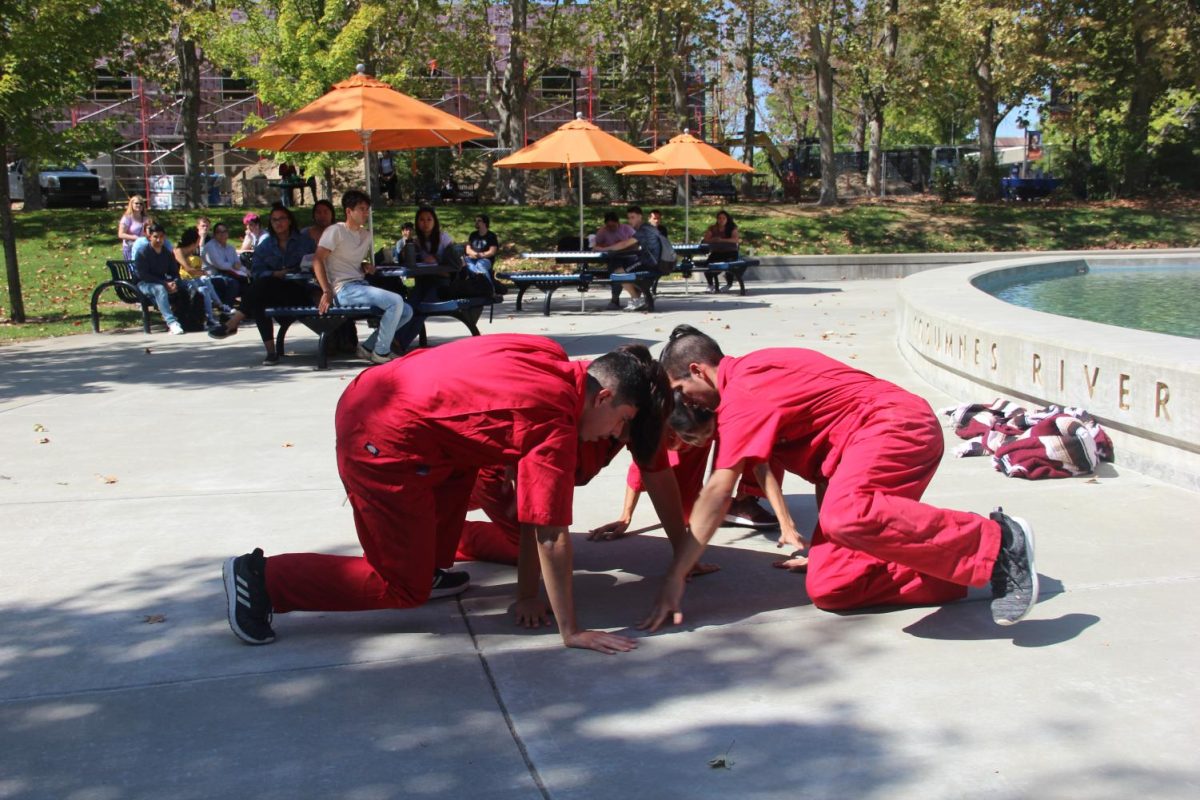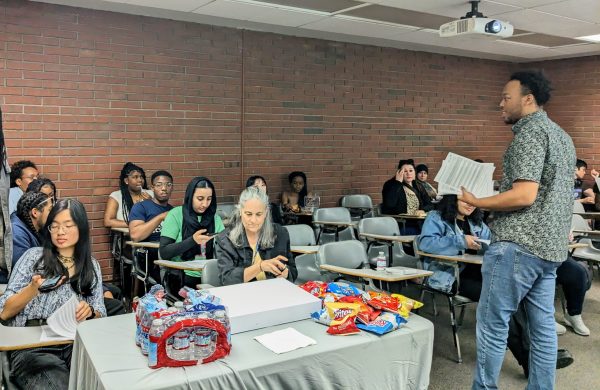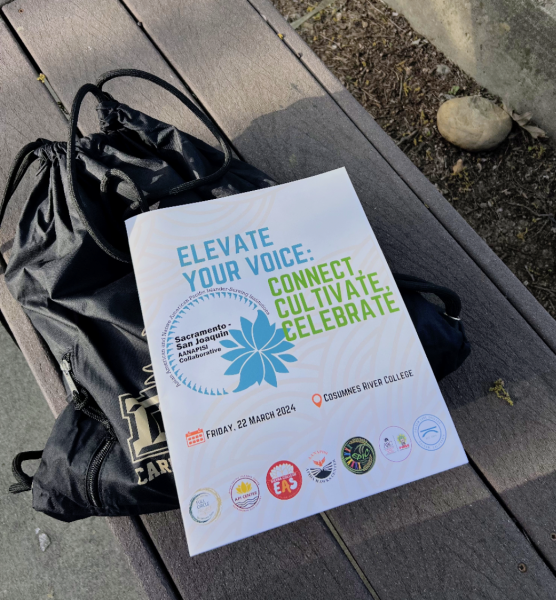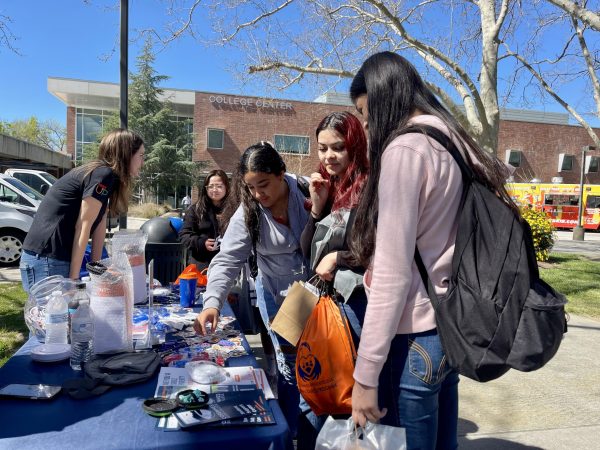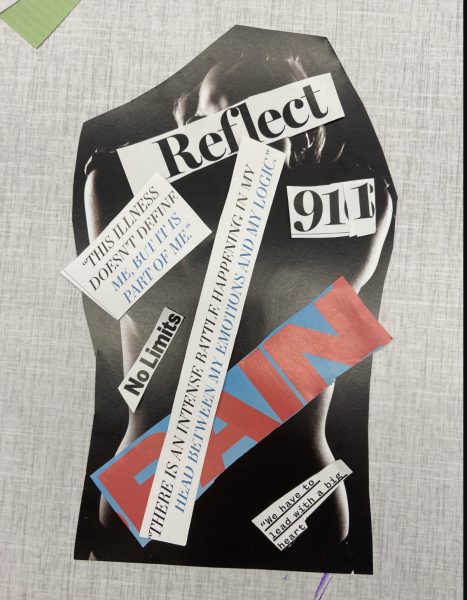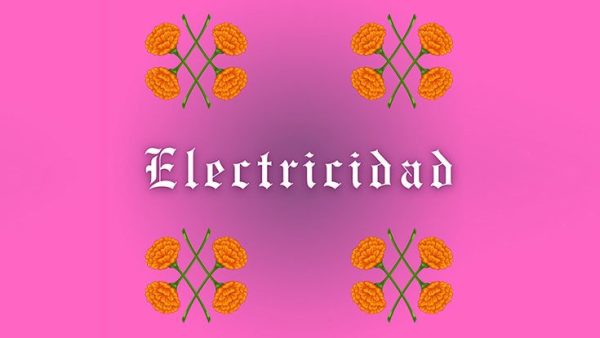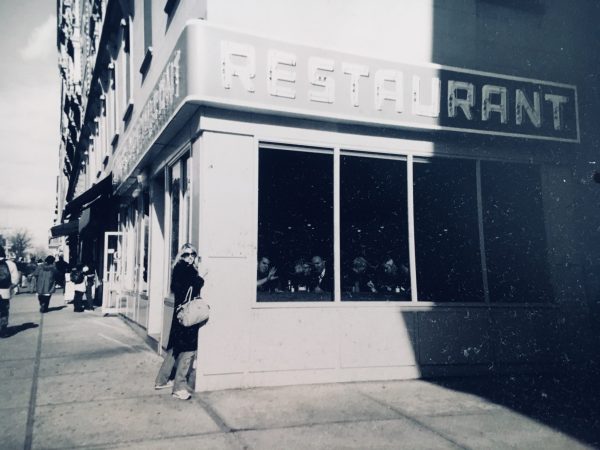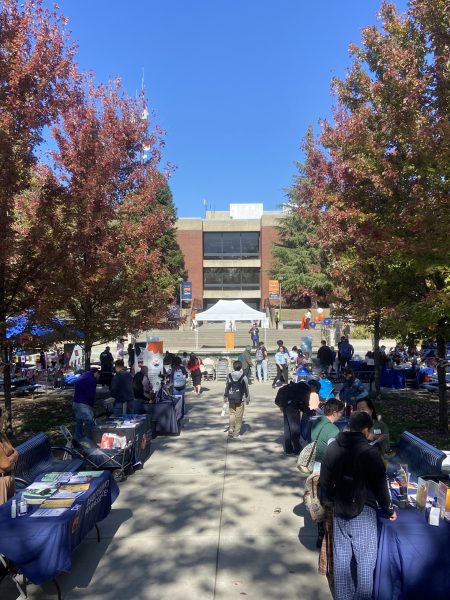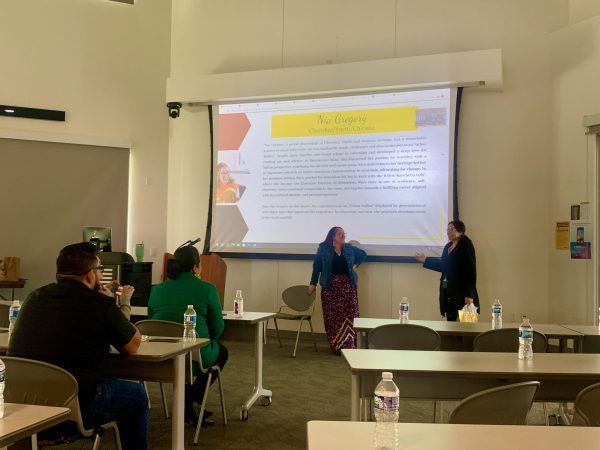Dance group makes statement about Mexican culture through performance
Primera Generacion perform in the quad on Sept. 26. During the performance, the group used dance to visually represent discrimination and the border crisis.
All-Mexican dance group Primera Generacion began their performance on the quad with an interactive performance on Sept. 26.
Primera Generacion performer Irvin Gonzalez said the way their collective works is that the dancers don’t have one director, because all four dancers are the director.
“We leave our work open to interpretation,” said Gonzalez. “Our work is codified in different ways, which means different parts of it speaks to different people in different ways.”
The dance group made a statement when they began performing in prison jumpsuits, using a silent dance to portray the discrimination immigrants face when they come to the United States.
The dance group then broke the silence, shouting out the jobs immigrants typically take on when they come to the country, jobs that are completely different than what they were working in their country.
A performer, Rosa Rodriguez-Frazier, shared a personal story of how her father would draw blueprints for white architects and receive no recognition for his work.
“Our work is codified in different ways, which means different parts of it speaks to different people in different ways.
— Irvin Gonzalez
The atmosphere got heavier when audio of the children crying at the border sounded through the speakers, causing a few students to tear up.
“This event really hit me hard,” said 23-year-old business major Omar Contreras. “I have been in a position where I lost someone close to me that wasn’t from this country and saying goodbye to them was really difficult.”
Contreras said it’s hard to accept the fact you won’t be able to see those family members as much but they have a harder time going through life.
The group then shed their prison jumpsuits, and the tone of the event changed to a more satirical one. They touched on subjects like the cultural appropriation of their culture.
“We really, as a culture, don’t celebrate Cinco de Mayo,” said another Primera Generacion performer Patricia Huerta. “It’s just a holiday that has been commercialized and profited off of.”
Contreras said he has a lot of respect for the performers for touching on these subjects.
“The message was powerful,” said Contreras. “The performance explained how immigrants are treated in America and I think that’s powerful.”

